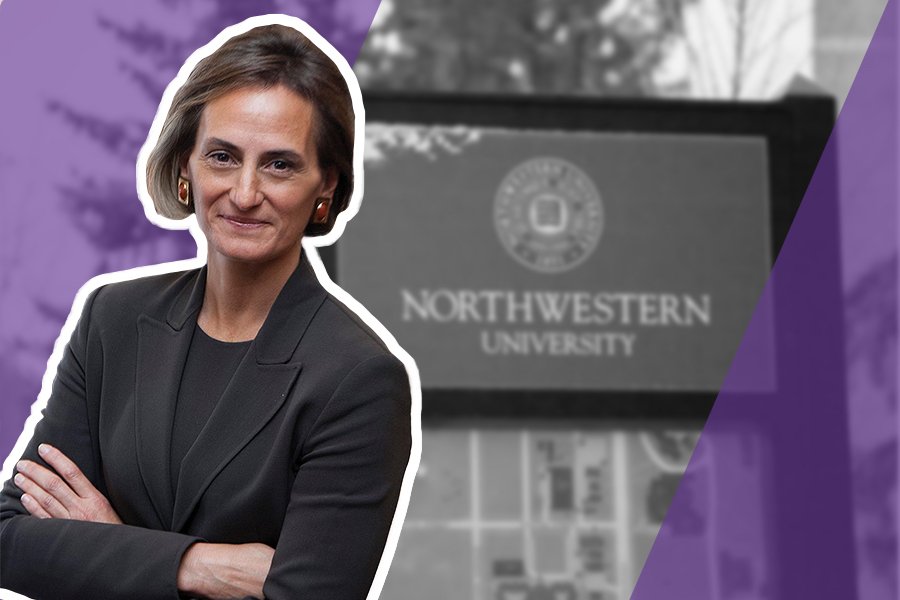Vice President and Chief Investment Officer Amy Falls speaks about endowment growth, answers questions at Faculty Senate
Daily file illustration by Meher Yeda
Amy Falls said she has plans to improve Northwestern’s endowment.
May 4, 2022
Vice President and Chief Investment Officer Amy Falls placed last year’s financial returns into context and answered faculty questions at Wednesday’s Faculty Senate meeting.
Last year, Falls said institutions across the country yielded high returns on their endowments. Northwestern’s individual return rate was 42.2% — something she said was a good sign, but also “middle of the pack” in relation to peer schools.
She said the Board of Trustees has made changes to asset allocations to generate higher returns with lower risks, a move in anticipation of broader equity return patterns.
“We are particularly keen on doing this because we believe that the baseline equity returns in the United States are likely to be lower over the next decade than they have been in recent decades,” Falls said.
In the University’s attempts to improve performance, Falls said it has expanded investment in junior resources, improved team organization and started diversity improvement initiatives. She said these changes are not just an effort from NU to make more money, but also to provide more support for graduate research and financial aid.
Falls added she is optimistic about these plans to improve the endowment, especially given its growth over the past 20 years.
“My goal is to get us up into that top quartile,” Falls said. “That would put us in the top 25. There’s about 100 university endowments (that) are over a billion. I think we can be one of the top 25.”
Faculty Senate Member and economics Prof. Mark Witte expressed concerns on behalf of some faculty about University actions in light of budget struggles. He said the University has responded to financial crises like the COVID-19 pandemic with cost-cutting measures like staff layoffs.
“If we were to have another shock like we had last time, would we be looking at ceasing to match retirement contributions?” Witte said.
Falls said she does not control how the University budget is spent, but does not expect to cut payout. The University currently has about $2 billion in cash, she said, and if circumstances called for it, that number could be drawn to zero. These measures mean the University is ready for a shock, Falls said.
Some professors also asked questions related to environmental investments. Faculty Senate member and Communication Prof. Kyle Henry said long-term and mid-term environmental shocks will be “catastrophic” to future economic planning.
Henry asked about NU’s investments along the Environmental, Social and Governance Criteria — a set of parameters for investors who are socially conscious. Henry asked if any current NU investments are creating beneficial short-term results but may affect systems more in the long term.
“How is the University factoring in the near-unanimous scientific data of the long-term shocks to the system?” Henry asked.
Falls said the University does not invest much in heavy carbon-producing industries, but the overall situation is “complicated.” She said NU is working on reducing its carbon footprint and is trying to avoid greenwashing — a term referring to companies that market themselves as environmentally friendly but don’t practice those ideals.
There is also a policy in the works that will emphasize engagement and energy transition, Falls said, but it is not a full divestment.
The last Faculty Senate meeting for the academic year will take place June 1.
Email: [email protected]
Twitter: @joannah_11
Related Stories:
— J. Landis Martin answers questions from faculty, reflects on time as Chair of Board of Trustees
— Faculty Senate discusses NU’s low admission rates and mental health services


